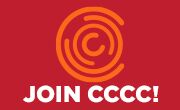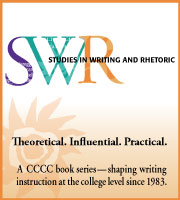Allen, I. E., & Seaman, J. (2010). Learning on demand online education in the United States, 2009. Babson Survey Research Group.
Burgstahler, S., & Cory, R. Eds. (2008). Universal design in higher education: From principles to practice. Cambridge, MA: Harvard Educational Press.
CCCC Committee for Best Practices in Online Writing Instruction. (2009). Annotated bibliography. Retrieved from https://prod-ncte-cdn.azureedge.net/nctefiles/groups/cccc/committees/owiannotatedbib.pdf
CCCC Committee for Best Practices in Online Writing Instruction. (2011). Initial report of the CCCC Committee for Best Practice in Online Writing Instruction: Report on the state-of-the-art of OWI. Retrieved from https://prod-ncte-cdn.azureedge.net/nctefiles/groups/cccc/committees/owi_state-of-art_report_april_2011.pdf
CCCC Committee on Disability Issues in College Composition (original in 2006, reaffirmed in 2011). A policy on disability in CCCC. Position statement. Retrieved from /cccc/resources/positions/disabilitypolicy
CCCC Committee for Principles and Standards for the Postsecondary Teaching of Writing. (1989) Statement of principles and standards for the postsecondary teaching of writing. Retrieved from /cccc/resources/positions/postsecondarywriting
CCCC Committee for Second Language Writing and Writers (original in 2001, revised in 2009). Position statement. CCCC statement for second language writing and writers. Retrieved from /cccc/resources/positions/secondlangwriting
Federal plain language guidelines. (2011). PlainLanguage.gov. Retrieved from http://www.plainlanguage.gov/
Griffin, J., & Minter, D. (March 2012). Expert views from student voices regarding fully online and hybrid OWI. A presentation from the 2012 Conference on College Composition and Communication. St. Louis, MO.
Guide to Disability Rights Laws. (2012). American Disabilities Act. Retrieved from: http://www.ada.gov/cguide.htm#anchor65610
Hewett, B. (2010). The online writing conference: A guide for teachers and tutors. Portsmouth, NH: Heinemann.
Moore, J. C. [The Sloan Consortium]. (2011). A synthesis of Sloan-C effective practices. Journal of Asynchronous Learning Networks, 16(1): 91-115.
Office for Civil Rights. (June, 2010). Joint “Dear colleague” letter: Electronic book readers. Retrieved from http://www2.ed.gov/about/offices/list/ocr/letters/colleague-20100629.html
Online learning: How effective is the virtual classroom? (2011). The Chronicle of Higher Education. Retrieved from http://chronicle.texterity.com/onlinelearning/20111111b/?sub_id=B2HNSHyoS0Yxv#pg1
Seaman, J. (2009). Online learning as a strategic asset, Volume 2: The paradox of faculty voices: Views and experiences with online learning. Washington, DC: Association of Public and Land Grant Universities and Sloan National Commission on Online Learning.
Warnock, S. (2009). Teaching writing online: How and why. Urbana, IL: NCTE.
Worley, W. L., & Tesdell, L. S. (2009). Instructor time and effort in online and face-to-face teaching: Lessons learned. IEEE PCS, 52(2), 138-151.












